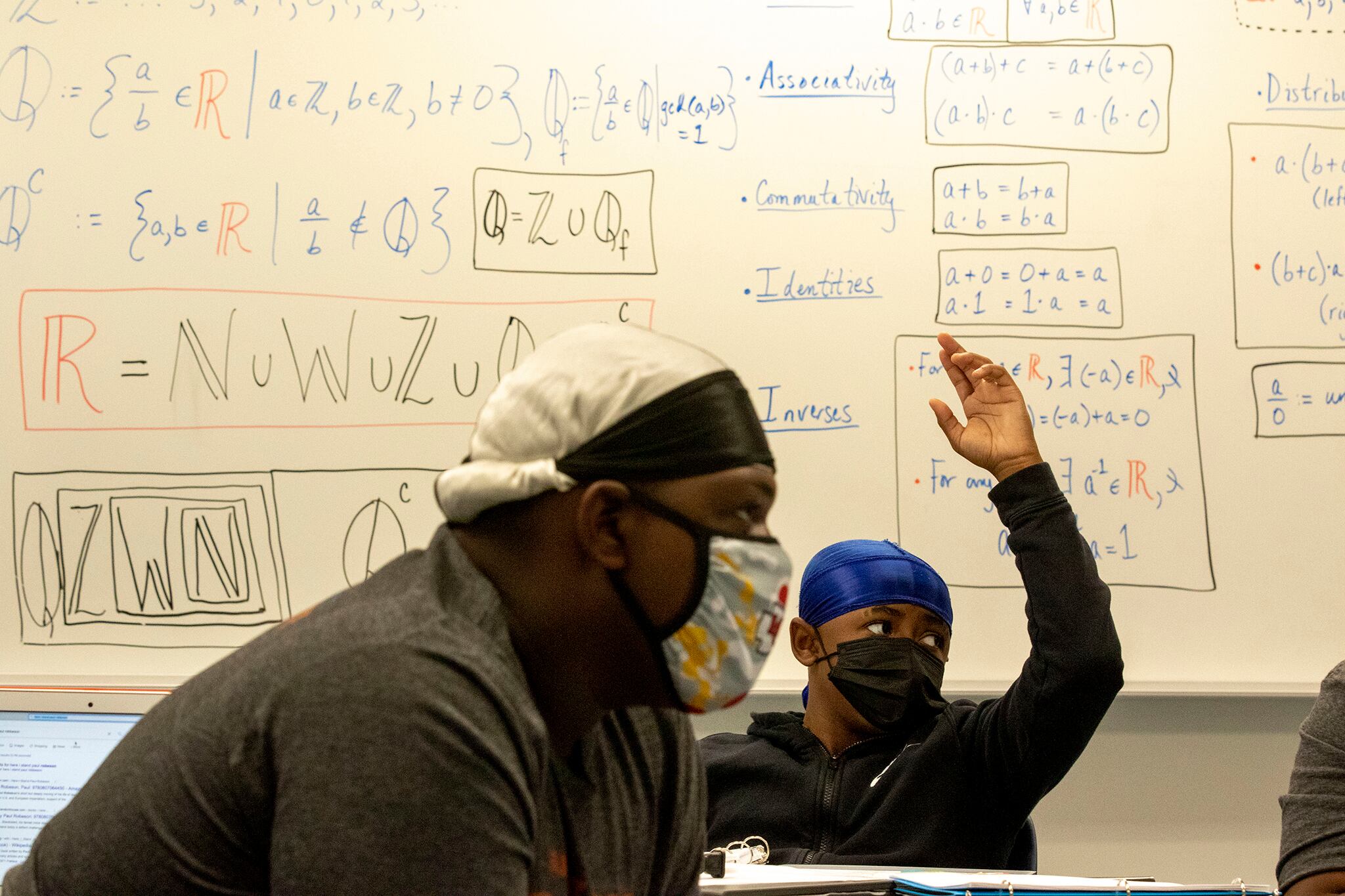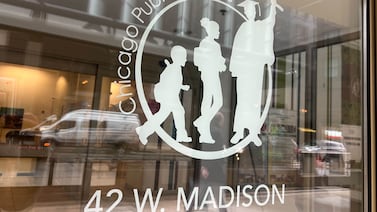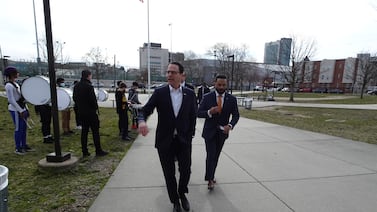To provide space for it to grow, Denver’s HBCU-style high school will move next year from a converted office building to a former elementary school in northeast Denver that district leaders said has amenities, such as a full kitchen, that its current space lacks.
The Denver school board unanimously approved relocating the Robert F. Smith STEAM Academy to the former Barrett Elementary building Thursday night. A program for students with disabilities now located at Barrett will move to a different location, district officials said.
Vice President Auon’tai Anderson said he voted yes reluctantly. He said he struggled with moving Smith STEAM out of the far northeast Denver community where it was founded.
“I was in a position today not to even want to attend this board meeting because I did not want to take the weight of this decision because I want to value what the original plan was,” Anderson said. “For me this is now centering on, I don’t see a Plan B.”
Modeled on historically Black colleges and universities, Smith STEAM opened in fall 2021 in a converted office building. The building was already occupied by another school, Montbello Career and Technical High, and the placement was supposed to be temporary. The district promised to find Smith STEAM a permanent location within two years.
This fall, Superintendent Alex Marrero said that wasn’t possible. Instead, he and his staff recommended closing Montbello Career and Technical High, known as MCT, to make room for Smith STEAM. After both schools pushed back, Marrero scrapped his recommendation.
But Smith STEAM and MCT can’t continue to share the building. Smith STEAM has about 135 ninth- and tenth-graders this year, and plans to add 11th and 12th grades over the next two years. There’s not enough room at the current location to do that.
What’s more, Smith STEAM doesn’t want to stay there. The school’s founders, along with students and parents, have said the building doesn’t meet their needs. Its hallways are narrow, some of its classrooms are small, and it doesn’t have a full kitchen, an auditorium, a competition-sized gym, or outdoor athletic fields.
“The building we’re in is not a school,” sophomore Jessie Matthews told the school board in October. “The ninth grade biology classes have to come into the 10th grade chemistry room to do experiments because the biology class is the size of a prison cell.”
The plan to move Smith STEAM to the former Barrett Elementary building in near northeast Denver was introduced at Thursday’s board meeting without an explanation from Marrero.
Anderson asked Marrero a series of questions, including whether the Smith STEAM principal was in favor of the move, whether the building would be retrofitted for high schoolers, and whether there was any empty land in the far northeast to build a new school instead.
Marrero answered the first two questions with a yes and the last question with a no.
“There is no land,” he said.
Smith STEAM Principal Shakira Abney-Wisdom did not respond to a request for comment.
Marrero said the board needed to vote Thursday so the district could publish Smith STEAM’s new address in a guide aimed at helping families choose schools. The window for students to apply for schools for next school year opens in mid-January.
The first year Smith STEAM was included in the guide, its address was listed incorrectly. Denver schools are funded per student. The mistake affected Smith STEAM’s enrollment and led the district to agree to fund the school as if it were fully enrolled.
Melanie Asmar is a senior reporter for Chalkbeat Colorado, covering Denver Public Schools. Contact Melanie at masmar@chalkbeat.org.







